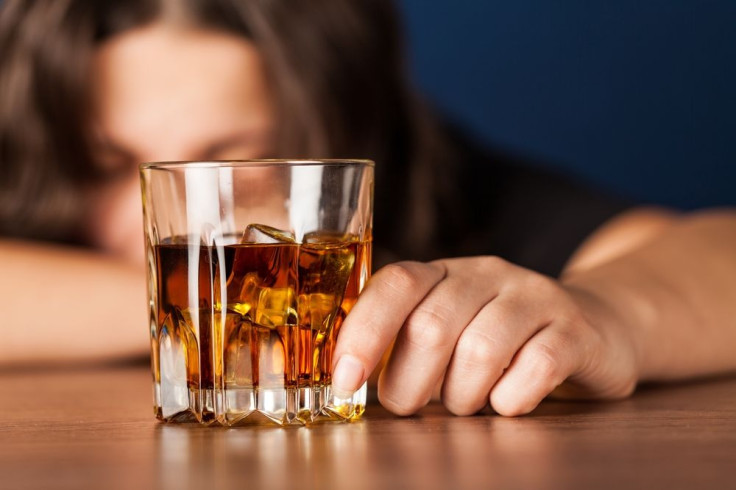Bottom Of The Bottle: Jealous People In Romantic Relationships More Likely To Cope By Drinking

Individuals who get their self-worth in their relationship and who think their partner is cheating on them are more likely to drink in order to cope with their relational problems, a new study published in Addictive Behaviors suggests.
For the first time, researchers at the University of Houston linked relational jealousy, relationship-dependent self-esteem, and alcohol consumption. The study surveyed 277 people at the large southern university and asked questions about how dependent their self-esteem was on their romantic relationship, the closeness of their relationship, how jealous they were, and their alcohol intake. Eighty-seven percent of the people that were surveyed were female. The results showed that people whose self-esteem relies on their relationship turned to alcohol because of their jealousy.
"We all experience feelings of jealousy to some degree; many people are in relationships that are less than ideal, and use alcohol for different reasons," Dr. Angelo DiBello, the lead author of the study and psychologist, said in a statement. "Romantic jealousy is a shared human experience, but very little work has looked at how it is related to alcohol use, misuse, and associated problems. This research helps to highlight the associations between these factors and show how our emotions, thoughts, and behaviors are related in potentially harmful ways."
Although it is true that the results found that people who relied on their relationships for self-worth were more likely to drink, this was especially true of those who were less satisfied, less committed to their relationships, and felt more disconnected from their partners.
Of course, this isn’t always a one-sided ordeal. The researchers are quick to note in the study that often these feelings of self-worth that are tied to the relationship reflect an unhealthy form of self-esteem put upon the other person in the relationship. This may spur on future events that fuel their disconnect. These events may not even have to do with anything related to their relational problems, such as a missed phone call here or a common, playful jab there. Any number of these failures to communicate their emotions can lead to jealousy, which as the research has shown, can lead to drinking.
In a 2007 study published in College Student Journal, researchers found that both men and women reported using alcohol because of feelings of jealousy in their relationships. However, the results indicated that 46.9 percent of men and 21.7 percent of women reported that they used drugs or drank “always, often, or sometimes,” to cope with feelings of jealousy. Thus, the proportion of those who drank was higher in men over against women. The recent study, which comprises primarily of women, shows that women also drank to cope with feelings of jealousy, showing a lack of much difference in gender-specific drinking to cope with their negative feelings.
The Centers for Disease Control and Prevention reports that excessive drinking was responsible for one in 10 deaths among working-age adults aged 20 to 64 years old. The economic cost of alcohol consumption was an estimated 223.5 billion. Many of these alcohol problems can be prevented. Many people who use alcohol to cope with negative emotions are one of the strongest predictors of excessive drinking.
“Given how common experiencing jealousy and being in romantic relationships are this work helps to explain difference associations that may negatively impact an individual’s drinking,” DiBello said.
Source: DiBello A, Rodriguez L, Hadden B, et al. The green eyed monster in the bottle: Relationship contingent self-esteem, romantic jealousy, and alcohol-related problems. Addictive Behaviors. 2015.
Published by Medicaldaily.com



























